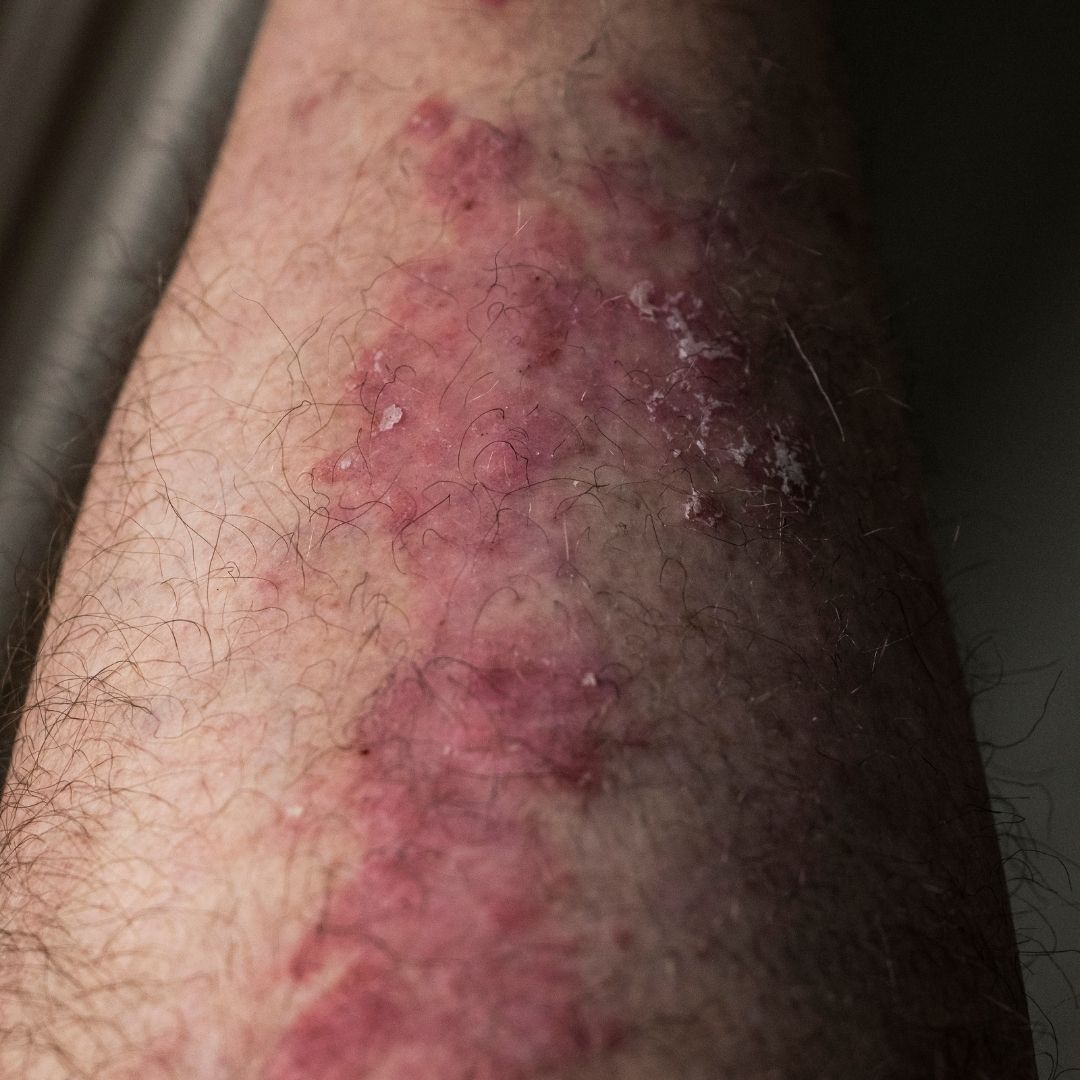Is itchy, dry skin driving you mad? Wondering about eczema causes and symptoms?
You are not alone. Over 31 million people in the U.S. alone suffer from eczema and 334 million people globally. Eczema isn’t contagious. You cannot catch it or spread it to someone else. Sufferers of eczema are often embarrassed by their skin’s visual appearance. They assure friends and co-workers that it’s not contagious. Unfortunately, the social stigma, stress, and feeling self-conscious only compound the underlying physical stresses which drive the inflammation. For more on how stress impacts eczema, read Eczema and Stress: The Connection and How Homeopathy Can Help.
Eczema, or Atopic Dermatitis, is a group of diseases that present as an inflammation on the skin. Atopic dermatitis usually starts in childhood (rash on baby cheeks and scalp) and grows milder with age. However, many adults still suffer from eczema flare-ups today. In fact, some live with chronic eczema. Asthma and hay fever have long since been associated with eczema. Factors that cause atopic dermatitis can be hereditary, immune problems, and environmental triggers. To learn about managing eczema in children, see our 5 Tips on Treating and Managing Eczema Rashes in Children.
Nummular Eczema
Nummular eczema is round, coin-shaped spots that form. It can be rather itchy and often mistaken for ringworm. Allergic reactions to chemicals or metals may trigger nummular eczema. It is the most common form to develop if you already have atopic dermatitis.
Lichen Simplex Chronicus (LSC) or Neurodermatitis
LSC is like atopic dermatitis, though the neurodermatitis patches can be thick, scaly, and very itchy, especially when asleep or relaxed. Itching can be intense and often lead to bleeding or infection. This form is commonly found on the back of the neck, scalp, elbows, ankles, genital area, or even anal region. It is not uncommon for those who suffer from obsessive-compulsive disorders (OCD) and anxiety to develop neurodermatitis. For natural treatment options, consider reading Homeopathy for Eczema: A Non-invasive and Natural Treatment. Lifestyle changes can also help; see our 6 Tips to Reduce Eczema Symptoms and Live Better. Additionally, understanding the link between eczema and respiratory conditions can be enlightening; read The Link Between Eczema and Asthma in Children.

When you experience eczema only on your hands, hand dermatitis, it could be a trigger of chemicals or irritants you encounter on a regular basis. Symptoms may be redness, dry, cracking, blisters on the fingers and palms and itching. It can even be server at times. Jobs such as healthcare, mechanics, cleaning, or hairdressing are more likely to form hand eczema.
Outbreaks in general can be caused by a large spectrum of things, and we believe the core reason for the inflammation must be addressed. Sufferers say their eczema outbreaks can be triggered by a seasonable weather change, or a reaction to new laundry detergent, food, and so many other reasons. At its core, eczema is an immune response.
Since there is not an overall “cure” for eczema, one of the best things that can be done to address it is to reduce the triggers. However, many seek relief for the for the itch and discomfort. Physicians typically prescribe corticosteroids, or steroids commonly called in oral or topical forms for atopic dermatitis. While steroids can reduce itching and inflammation overuse can damage the immune system.
We wanted to create something that works with your body to help reduce outbreaks and ease eczema symptoms without toxic chemicals or side effects. Our team of homeopathic doctors formulated fifteen different medicinal plants to calm the skins response at a cellular level. Our natural Eczema Control remedy delivers immune-enhancing properties to ease symptoms and balance the system. The soothing essential oils have anti-inflammatory properties which work on a local level to heal damaged skin. It truly is natural relief.
User’s report a reduction in symptoms, and the frequency of the eczema outbreaks.


